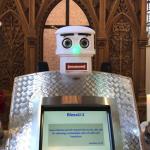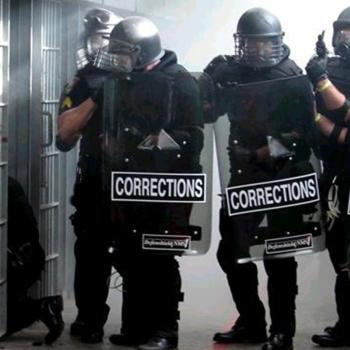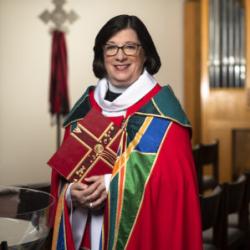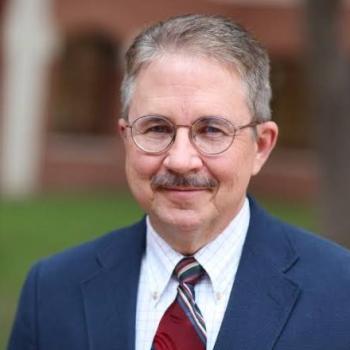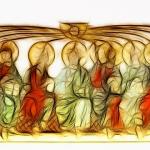Afterlife & the Soul: Resources
Afterlife? Really?
What are the options?
with
Ted Peters

Afterlife? Really?
I don’t know about you, but I don’t like thinking about my upcoming death. When I think about dying and departing this world, I imagine missing out on what’s happening. I’ll miss out on what my grown kids are talking about. On how my precious grandchildren are growing up. On the next new technological marvel from Apple. On the next losing season for the Oakland A’s. It bothers me to think the world will go on without me as a part of it.
Like so many other children, at age four or five I was frightened of the dark. I feared falling asleep, worrying that I might never wake up.
A recurring dream haunted me. In this dream, I would crawl out of my bed and look underneath. There I would see a wooden box filled with dried human bones. Were those my bones?
Oh, yes, my mother comforted me. She stressed that on the other side of death Jesus would be waiting for me in the resurrection. So, in the years since I’ve lived with a double mind. The combination of haunting fear and comforting grace.
In this Patheos series on the Afterlife, I have collected as many ideas about the afterlife as I could such as oblivion, astral body, immortal soul, reincarnation, and resurrection of the body. I tried to compare them and contrast them. I wanted to see which ones are more or less credible and which should be dismissed as folly. I wanted especially like to compare what Saint Paul says in 1 Corinthians 15 with other afterlife options.
When yer dead, yer dead! Really?
Today’s doctrinaire materialists tout iconoclasically: “when yer dead, yer dead!” When yer dead, it’s only oblivion. This rejection of an afterlife especially applies to neurocentrists who believe the mind is reducible to the brain. Patricia Churchland, for example, contends that when the brain dies the mind or soul dies with it.
“The death of the brain, the facts suggest, entails the death of the mind….What could a soul be, since memory, skill, knowledge, temperament, and feeling all seem to depend on activities of neurons in the brain?” (Churchland 2013, 264).
When we cast our gaze at the ancient world, however, we see that our ancestors were not neurocentrists or materialists. People living in many archaic cultures believed in an afterlife. What that afterlife looks like differs from culture to culture, to be sure.

About 2500 years ago, certain axial age cultures gave rise to the great religious traditions we have inherited. In different though suprisingly common ways Hinduism, Buddhism, Taoism, Zoroastrianism, Greek philosophy, and biblical religion developed belief in the soul. The soul, our ancestors came to believe, constitutes the essence of our personhood. Our personal soul cannot be reduced to material elements or temporal processes alone. No. Our soul gets called into immortal existence by a transcendent voice. By the voice of God. Afterlife becomes salvation.
Salvation, according to this view, requires a soulechtomy. That is, a sort of spiritual surgery removes the soul and discards the body. The soul gets saved. The body gets discarded.
Afterlife in Judaism?
One the one hand, avers Rabbi Jeffrey Salkin, we die but our legacy lives on in this world.
We live on through our children. Childbirth is not just biology. It is theology. When we name our children after departed relatives, and when we teach our children about who those relatives were, and about their values, our children become their immortality.
On the other hand, this same rabbi believes in a solechtomy after death.
I believe that the soul returns to God and that God, the Soul of the Universe, is the guardian of all souls.
When I perform a funeral, I recite this prayer: “O God of Compassion, let the soul of our beloved rest beneath the wings of God’s Presence, along with all the other pure and righteous ones in the Garden of Eden.”
The soul gets saved. The body gets discarded. Must that soul face judgment?
The Final Judgment
More than merely immortality is at stake. So also is judgment. Frequently though not universally, death becomes the point of reckoning. Evil gets punished. Good gets rewarded. Whether its Zoroastrianism or platonic philosophy or biblical religion, death opens the door to judgment. Wrongs get righted after death.
It is judgment that determines our eternal destiny. Death and judegment go together like McDonalds and hamburgers.
Purgation and Soul-Making?
In some theological schemes, the human soul follows a path of sanctification–theosis in Eastern Orthodox Christianity–wherein you and I work synergistically with the divine nature and gradually become more godly. At the conclusion of this process, our being merges with the divine being in eternity.
The purging of selfishness and sin is called ‘purgation’. Might one need a period in Purgatory immediately following death to ready oneself for an eternal bond with God? According to the Catechism of the Catholic Church (CCC), Purgatory provides…

“This process of soul-synthesis occurs when worthy impulses, intentions, or mental states—especially those linked to challenging moral decisions—rise above the instinctive or reactive level of mind. There they engage with the indwelling God-self, which by nature seeks out an energetic resonance with our most important and meaningful decisions. These factors—a resonating mental content combined with its sublime acknowledgment by our inner divinity—meet, merge, and dissolve, so to speak, into one another, creating a mixed substance of the subtle realm whose luster is unique—and this substance is called the soul” (Belitsos, 2023, 189).
One may think of purgatory negatively, as the burning off of dross to uncover the pure gold. Or, one may think of soul-making in the afterlife positively, as a step by step ascension to divinity. Belitsos follows the path of positive ascent.
Soul Sleep?

The Reformation tradition, especially the Lutherans, substitute soul sleep (psychopannychism) for purgatory. Some Roman Catholics vigorously object to Martin Luther‘s dodging Purgatory.
Luther had been an Augustinian monk. His mentor a thousand years previously was Saint Augustine. When Augustine took up the question, here is what he said:
“During the time, moreover, which intervenes between a man’s death and the final resurrection, the soul dwells in a hidden retreat, where it enjoys rest or suffers affliction just in proportion to the merit it has earned by the life which it led on earth” (Augustine 1961, CIX, p.127).
What Luther inherited, then, was the notion of an awake soul possibly subject to purgatorial affliction. But, Luther rejected the idea of Purgatory as unscriptural and as a contradiction to salvation by God’s grace alone, sola gratia. Without a Purgatory between death and resurrection, what might a soul do? How about sleep?
Luther and subsequent Lutherans intensely stress that our sanctification is a gift of divine grace and not the end result of a cooperative synergy. It is God and God alone who readies us for eternal life. At the moment of death, we undergo a total loss of consciousness. When we awaken, we shall find ourselves resurrected at the moment of the parousia and the advent of the new creation.
“As soon as you eyes have closed you shall be wakened. A thousand years shall be as if you had slept but only half hour. Just as at night we hear the clock strike and do not know how long we have slept, so too, and how much more, are in death a thousand years soon past. Before a person can turn round, that person has become transformed into a fair angel” [Martin Luther, WA, 37.191).
It is God who gives our self in its trasformed state to our self. Lutheran children prayer this prayer at bedtime.
Now I lay me down to sleep.
I pray the Lord my soul to keep.
If I should die before I wake,
I prayer the Lord my soul to take.
If I should live for other days,
I pray the Lord to guide my ways.
Conditional Immortality?
Is the human soul naturally immortal? If so, then everyone survives death in a disembodied form. Everyone passes through judgment and perhaps purgation.
However, the Bible does not exactly say that the human soul is immortal. When God gave us life in Genesis 2:7, God’s breath animated your and my body. If God were to withdraw the divine breath, we would go the way of all physical things. We would rot.
The conditional immortalists among us foresee two alternatives at death. One alternative is extinction–that is, when yer dead yer dead. The other alternative is a divine act whereby we are resurrected into God’s everlasting new creation. Here is what the Conditional Immortality Association of New Zealand tells us is taught by Scripture.
“Conditional Immortality is an unfortunately cumbersome piece of jargon that refers to a fairly simple belief: That human beings are mortal, and can only receive immortality on the condition that God gives it to them as a gift through faith in Jesus Christ.”
It seems to me that afterlife in any form relies on God’s action. Afterlife is not natural. Resurrection of the body will require divine action on the order of God’s raising Jesus from the dead on the first Easter.
Afterlife Options
The prospect of our own death plunges us into existential questions, inescapable questions. Alternative answers to these questions have arisen over the centuries on different continents. Might we open our ears to listen what our ancestors have said? This has been the agenda for this Patheos series on the Afterlife.
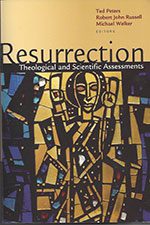
AFTERLIFE? REALLY?
- The Denial of Death
- Naturalism: When yer dead yer dead!
- Astral Body? Ka? Or Angel?
- Third Day Afterlife
- Immortal Soul
- Reincarnation
- Near Death Experience
- Communication with the Dead
- Absorption into the Mystical Infinite
- Resurrection of the Body
- Heaven
- Hell
- Purgatory
- Universalism, Grace, and Hellfire
- Predestination and Destination
- Afterlife Resources
- AI and Radical Life Extension
Afterlife Videos
Models of Body, Soul, and Spirit
What about the immortal soul? What are the options?
Patheos ST 4131 Soul 1 Resources
Patheos ST 4132 Soul 2 Substance Dualism
Patheos ST 4133 Soul 3 Trichotomy
Patheos ST 4134 Soul 4 Materialisms
Patheos ST 4135 Soul 5 Emergent Dualism
Patheos ST 4136 Soul 6 Resurrection of the Body
Patheos ST 4137
Patheos ST 4138 The Soul of Benedict XVI
Science, Technology, and Our Transformed Future
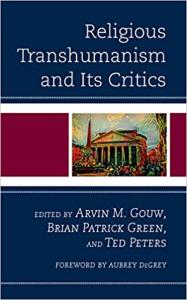
Scientists and theologians face the enigma of death squarely. I’m grieving at a distance for my former mentor and colleague, Philip Hefner, who lost his precious Neva last Christmas tide. I’m thanking the Lutheran Alliance for Faith, Science, and Technology for asking Jaren Summers to write on “The science and theology of death: what comes after?”
Scientists and theologians are not the only paddlers in the afterlife canoe. So also are the techies. Some techies–especially the transhumanists among us–are gripping the paddles with Promethean hands steering the canoe in the direction of radical life extension and even cybernetic immortality. What religion has failed to deliver, the transhumists will accomplish through technological innovation. Specifically, with the help of Artificial Intelligence (AI) and Intelligence Amplification (IA), transhumanists want to guide us over the singularity cataract and plunge us into disembodied yet eternal superintelligence.
This posthuman proposal for disembodied immortality sounds an Emergency Alert System siren that blasts loudly in the public theologian’s ears. Just how should we think about such a proposal? A series of Patheos posts addresses Religious Transhumanism and related movements.
Afterlife Prospective
As we entertained the various options for the afterlife, we necessarily reviewed options for understanding human consciousness, selfhood, the nature of death, and the relationship between time and eternity. We tried to uncover what is universal in human experience and what is culturally or historically contextual.
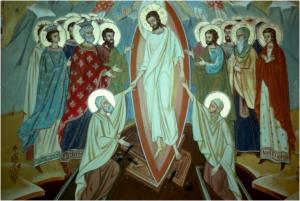
We have honestly asked: might there be penultimate or temporal forms of afterlife? How seriously should we take claims of the Chumash Amerindians that the disembodied soul waits locally for three days before transiting with the sun to its final destination? What might be the reality behind Greek claims of an immortal soul? Why do cultures as diverse as Chinese Buddhism, Greek philosophy, and Zoroastrianism, along with biblical traditions anticipate a judgment during the interim between death and our final destiny? Why do adherents to India’s Dharma tradition believe in multiple reincarnations before dissolving into the mystical infinite?
We’ve had questions to ask in this Patheos afterlife series. Lots of them.
Our anchor point in this restless sea of options has been what Saint Paul says in 1 Corinthians 15:42-44.
“So it is with the resurrection of the dead. What is sown is perishable [corrupt, φθορᾶ], what is raised is imperishable [incorrupt, ἀφθαρσία]. It is sown in dishonor [ἀτιµία], it is raised in glory [δόξῃ]. It is sown in weakness [ἀσθενία], it is raised in power [δυνάµει]. It is sown a physical body [σῶµα ψυχικόν], it is raised a spiritual body [σῶµα πνευµατικόν]” (1 Cor. 15:42-44).
This biblical promise of resurrection is central to Christian eschatology. This eschatological vision is ultimate and eternal. By explicating what St. Paul says, we’re responding with reasoned answers to a New Testament mandate.
“Always be prepared to give an answer to everyone who asks you to give the reason for the hope that you have. But do this with gentleness and respect” (1 Peter 3:15).
Afterlife and the Soul: Resources ST 4110
▓
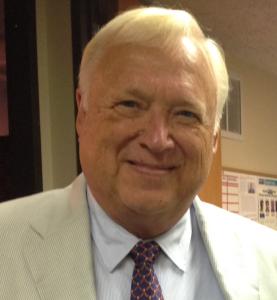
Ted Peters directs traffic at the intersection of science, religion, and ethics. For Patheos, he posts articles and notices in the field of Public Theology.
Peters is an emeritus professor at the Graduate Theological Union, where he co-edits the journal, Theology and Science, on behalf of the Center for Theology and the Natural Sciences, in Berkeley, California, USA. He authored Playing God? Genetic Determinism and Human Freedom? (Routledge, 2nd ed., 2002) as well as Science, Theology, and Ethics (Ashgate 2003). He is editor of AI and IA: Utopia or Extinction? (ATF 2019). Along with Arvin Gouw and Brian Patrick Green, he co-edited the new book, Religious Transhumanism and Its Critics hot off the press (Roman and Littlefield/Lexington, 2022). He has just published The Voice of Christian Public Theology (ATF 2022). See his website: TedsTimelyTake.com.
His fictional spy thriller, Cyrus Twelve, follows the twists and turns of a transhumanist plot.
▓
Afterlife Sources
Augustine, The Enchiridion on Faith, Hope and Love. Chicago: Henry Regnery, 1961.
Belitsos, Byron, 2023. Truths about Evil, Sin, and the Demonic. Eugene OR: Wipf and Stock.
Catechism of the Catholic Church.
Luther, Martin, Dr. Martin Luthers Werke, Weimar, 1883-1929 [WA=Weimarer Ausgabe].
Peters, Ted, Robert John Russell, and Michael Welker, eds., 2002. Resurrection: Theological and Scientific Assessments. Grand Rapids MI: Eerdmans.



